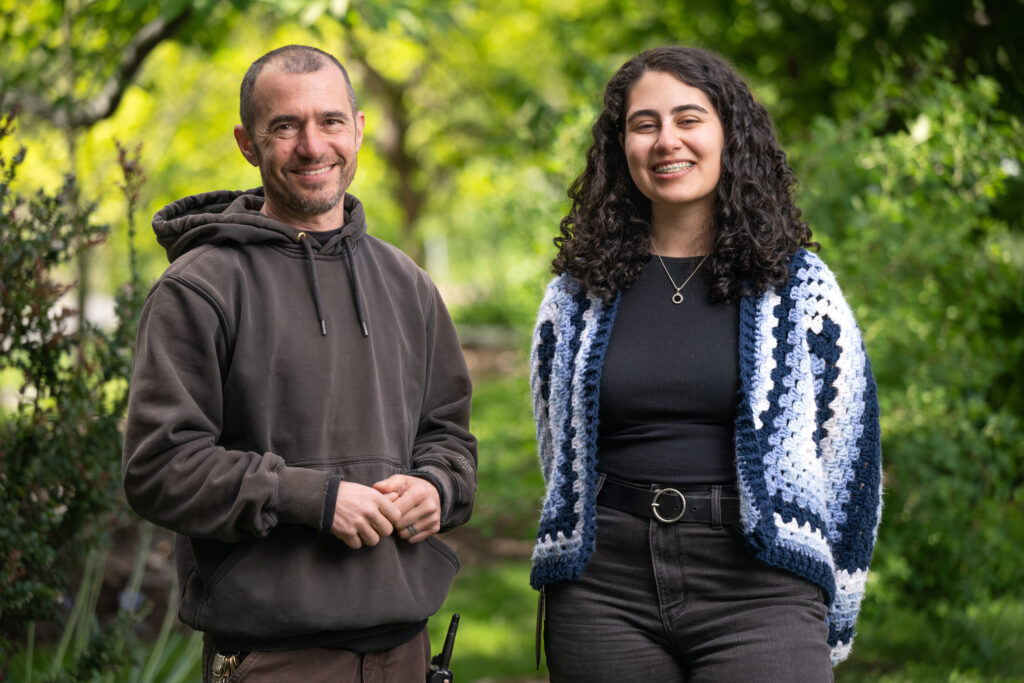SUSTAINABLE LAND MANAGEMENT

There is a guiding principle behind this award-winning campus.
WALKING AROUND UW BOTHELL, visitors are often captivated by the beauty of the area. But beauty is not the top priority when it comes to our campus — something represented by a principle the land management team calls “beauty third.”
Sustainability coordinator Shahrzad Tehrani said she uses a rose as an example. “A rose is beautiful. It has big petals. And it’s colorful. But all its energy is going to create pigments in those petals and not so much nectar that’s attractive to pollinators or seeds for birds.
“So,” she said, “it’s only serving that beauty function.”
At UW Bothell, however, a first priority for the land is ecological function, according to Tyson Kemper, manager of grounds and wetland operations. “We make an effort to ensure that all areas of the campus landscape are contributing in some meaningful way to providing habitat, managing stormwater, sequestering carbon, and supporting pollinators and a diverse food web.”
A second equal priority is cultural relevance. Kemper said these are elements “meant to more directly support the campus human community and its well-being — places like our Food Forest, Campus Farm and Medicinal Herb Garden that provide food and medicine as well as experiential education opportunities.”
Added Tehrani, “the idea is that beauty will emerge out of the prioritization of the ecological and cultural function.”
By following the “beauty third” principle, visitors walking around campus throughout the seasons can see bees, salmon and beavers thriving. And, whether they know it or not, they see a campus that has been nationally recognized, year after year, for its approach to sustainability.
Learn more about our award-winning campus in these stories: